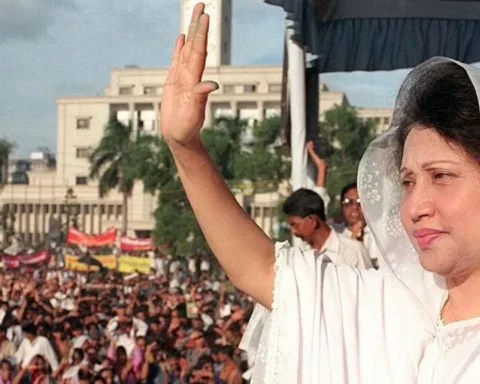The UK economy failed to grow between July and September, figures show, after a succession of interest rate rises.
The chancellor said higher rates were hitting growth, but added that the economy had performed better than expected this year.
Forecasters suggest the economy is set to be stagnant for several months yet.
Last week, the Bank of England said the UK was likely to see zero growth until 2025, although it is expected to avoid a recession.
Up until September, the Bank of England had raised interest rates 14 times in a row to try to tame soaring price rises.
However, while raising rates can reduce inflation – the pace at which prices rise – it also affects economic growth by making it more expensive for consumers and businesses to borrow money.
Interest rates are at a 15-year high of 5.25%, and are expected to remain high for some time. Bank governor Andrew Bailey said last week it was “much too early” to be considering rate cuts.
Paul Dales, the chief UK economist at Capital Economics, said the latest data suggested “the drag from higher interest rates is growing”, but he does not expect the Bank to start cutting rates until late next year.
The Office for National Statistics (ONS) said the latest growth figures showed a subdued picture across all sectors of the economy.
The services sector saw a small decline over the three-month period, while manufacturing and the construction sector recorded marginal growth.
The Chancellor, Jeremy Hunt, told the BBC: “Naturally interest rates do have an impact and the judgement of the Treasury is that the main reason growth has slowed is because of that.
“What is perhaps a surprise to many people is that the economy has been much stronger than people thought,” he said.
“Most people thought it was going to contract this year. It’s actually grown, and that gives us an excellent foundation for the future.”
Asked if he would be looking to reduce taxes in the Autumn Statement on 22 November, Mr Hunt said he wanted to bring the tax burden down, but that business tax cuts would take priority over personal taxes. “I’ve always been clear that low taxes are part of a dynamic, successful, entrepreneurial economy, but what I’ve said is my priority is growth, so cutting business taxes is the most important thing at this stage,” he said.
Labour’s shadow chancellor Rachel Reeves said the latest figures were “further evidence that the economy is not working”, while Liberal Democrat Treasury spokesperson Sarah Olney said the Conservatives had “delivered a hammer blow to our economy leading us down a no-growth path”.





